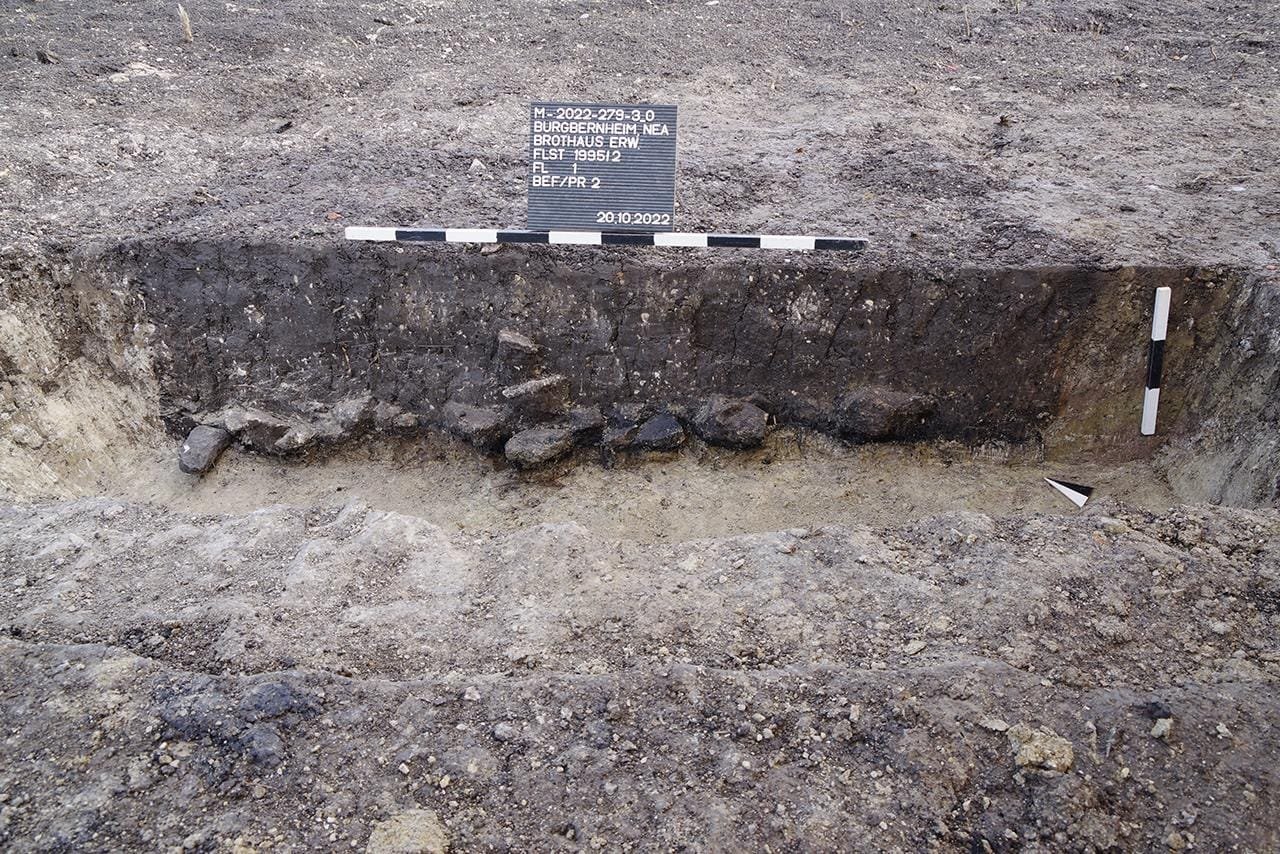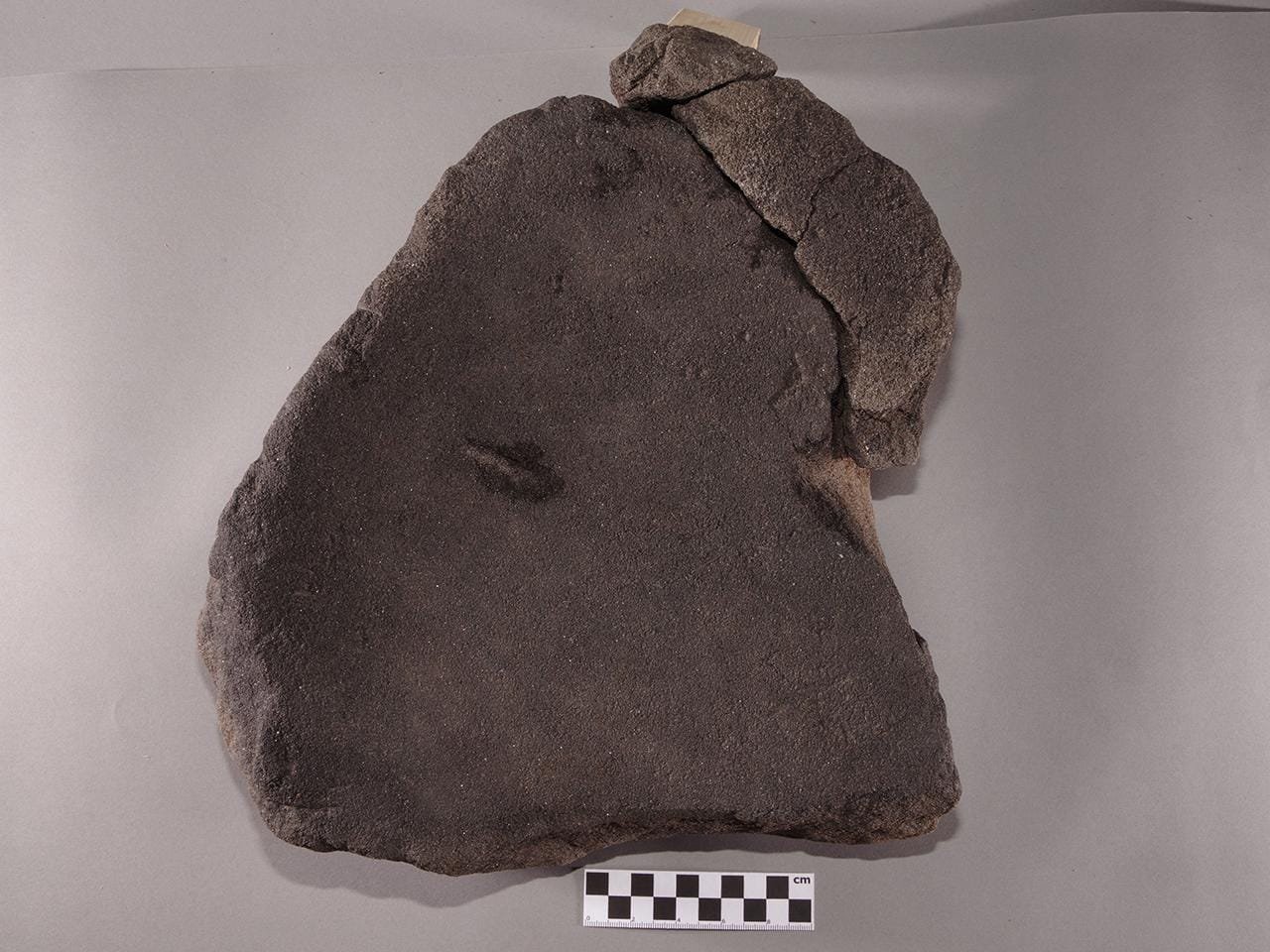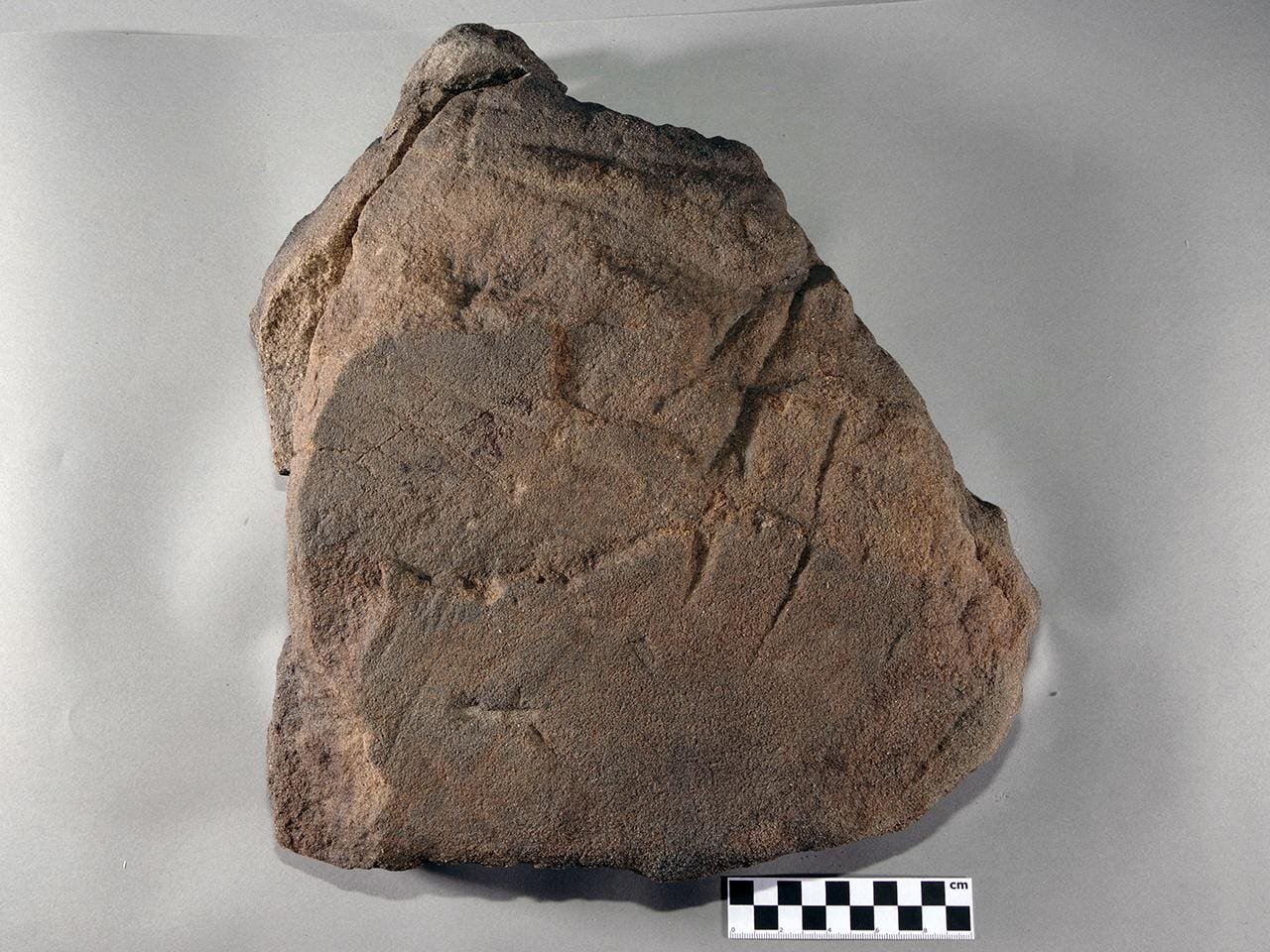Archaeological excavations in Burgbernheim, located in the Neustadt an der Aisch-Bad Windsheim district of Bavaria, Germany, have uncovered evidence of early baking practices dating back to the late Bronze Age and early Iron Age, around 800 BCE. The discovery was made during an expansion project for a local bakery chain.
 Archaeologists in Burgbernheim have uncovered 2,800-year-old cooking pits containing charred food remnants, along with a millstone used for grinding grain. Credit: WANAX via the Bavarian State Office for Monument Preservation
Archaeologists in Burgbernheim have uncovered 2,800-year-old cooking pits containing charred food remnants, along with a millstone used for grinding grain. Credit: WANAX via the Bavarian State Office for Monument Preservation
The Bavarian State Office for Monument Preservation (BLfD) supervised the excavations, revealing an unusually high concentration of pits filled with heat-altered stones. These pits, often referred to as cooking or roasting pits, were ᴀssociated with food preparation, as confirmed by archaeobotanical studies. Radiocarbon dating of charcoal samples from the pits placed them firmly in the late Bronze Age and early Iron Age.
“Cooking pits have been identified in previous studies both in this region and beyond. However, the exceptional concentration of these structures documented here is highly significant for reconstructing diets and agricultural practices during the Metal Ages in Bavaria,” explained Dr. Stefanie Berg, head of the Department of Archaeological Monument Preservation at BLfD.
A key discovery from the site was a grinding stone, or millstone, measuring approximately 26 by 34 centimeters. Its smooth, concave surface indicated that it was used for milling grain into flour. The underside of the stone, flattened for stability, along with its roughly hewn sides, suggests it was a well-used tool.
 The ancient millstone as seen from above. Credit: WANAX via the Bavarian State Office for Monument Preservation
The ancient millstone as seen from above. Credit: WANAX via the Bavarian State Office for Monument Preservation
Archaeobotanical analysis revealed that the charcoal samples contained 83% grain residues, predominantly millet, einkorn, spelt, and oats. Additionally, researchers found rare remains of physalis seeds, suggesting a varied diet. These findings indicate that grains were processed into doughs or breads.
The artifacts, including the grinding stone, will be sent to the BLfD’s restoration workshop for further analysis and conservation. Researchers believe that these finds underscore Burgbernheim’s importance as a center for food production during the late Bronze Age and early Iron Age.
 The underside of the millstone. Credit: WANAX via the Bavarian State Office for Monument Preservation
The underside of the millstone. Credit: WANAX via the Bavarian State Office for Monument Preservation
“This discovery is extremely important for understanding ancient Burgbernheim and its role in agricultural development,” added Dr. Berg.
The excavations, which have been ongoing for several years, also revealed evidence of heat-altered stones and charred plant remains, corroborating the area’s significance in food preparation and baking.
Bayerisches Landesamt für Denkmalpflege





